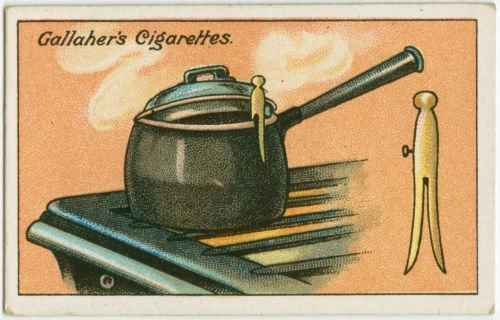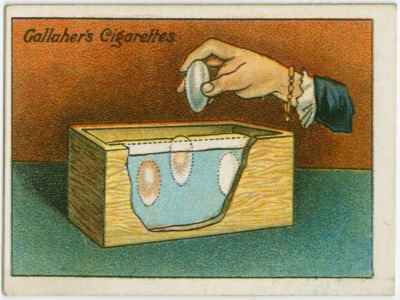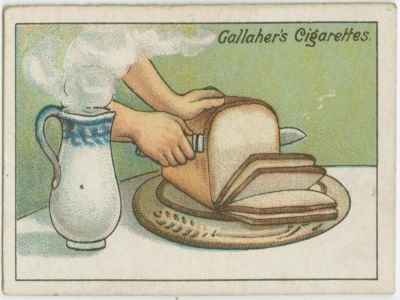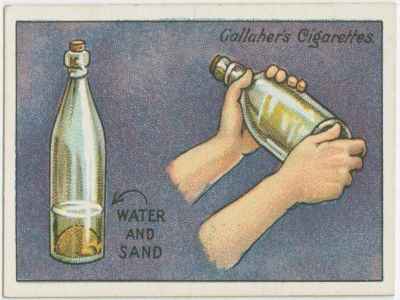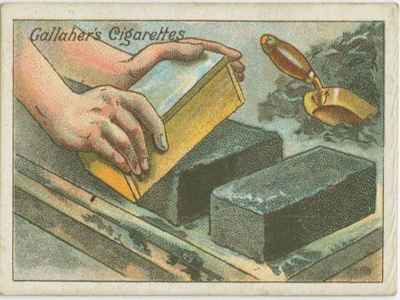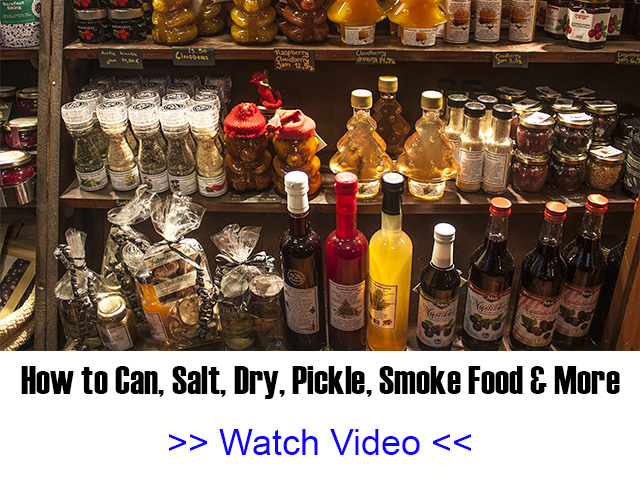You might still make use of some of the time-proven wisdoms today.
In 1910, one of the manufacturers, Gallaher Ltd Belfast & London, tried to make their products more popular by printing practical everyday advice on the cards. You might still make use of some of the time-proven wisdoms today.
The life hacks of 100 years ago
How to Preserve Eggs
“Eggs for preserving must be new laid, and by simply putting these into a box or in of dry salt — burying the eggs right in the salt and keeping in a cool dry place — it is possible to preserve them for a very long period. No air whatever must be allowed to get at the shells.”
Are these eggs too old — How to Test for Egg Freshness
As an egg ages it gets lighter by evaporation of water through the porous shell, causing the growth of the air space. A fresh egg is heavy and should feel well filled. Hence the old water test for freshness, a fresh egg sinks and an old egg floats. When broken, the white of a fresh egg should be compact round the yellow. It spreads out, as it gets older. Holding it up to the light can also test the freshness of an egg. A very small air chamber indicates a very fresh egg. Typically eggs reach the shops within 2-3 days of being laid. Eggs should be used within 1 month and kept under the conditions described.
How to test butter quality
“A good way of testing butter is shown in the picture. Rub a little of the suspected compound upon a piece of paper and set the paper alight. If it is pure butter, the odour will be dainty and agreeable, while the presence of Margarine is made known by an unpleasant tallow smell”
Natural butter is firm when touched. Another clue is that butter will not stain your package when you take it. Also, it does not stick to the knife.
When real butter is heated after cold – it does not become soft, in contrast to margarine, which melts quickly (due to vegetable fats).
The butter made from high-quality cream is hard and smooth to touch. When you cut it, it should be shiny and homogeneous.
Finally, natural butter should not crumble once it has been taken out of the refrigerator. Real butter is spread on bread as a dense homogeneous layer.
How to Cut New Bread into Thin Slices
When boiling cracked eggs.
What is the best way to peel a boiled egg so the egg white does not stick to the shell? Here are several responses, although all bets are off for eggs only a couple days old.
After boiling, pour off the hot water, shake pan back and forth to crack the shells. Cover eggs in cold water and let set for a couple of minutes. Leave water and eggs in pan and peel, using water to rinse away excess shells.
Or, take the egg from boiling water and immediately run cold water on it. Peel the egg under cold running water starting with rounded top where the air pouch is.
Why do eggs crack? How can I prevent eggs from cracking while boiling?
The bottom, rounded end of an egg contains a small air bubble. As the egg heats up, the air inside the bubble expands. As the hot air pushes outwards, it puts pressure onto the shell, making it crack. You can prevent this by making a pin-pick in the bottom rounded end of the egg. This will let the expanding air escape.
You can also prevent cracking by letting eggs come to room temperature before cooking them. Add the eggs to tap water and then apply the heat. Do not add eggs directly into boiling water.
Adding either salt or vinegar in the water will not prevent the egg from cracking but will congeal the white if it starts to leak out of the shell from a small crack, making the cracked egg, still pleasing to look at.
A hint when boiling potatoes.
Potatoes are easier to prepare and healthier for you when cooked with their skins on. Always rinse and scrub the potatoes thoroughly before using.
When you are using cut up potatoes in your cooking, preserve the color by place them in cold water. Limit the water soaking time to two (2) hours to retain the water-soluble vitamins.
Color discoloration (pinkish or brownish) happens from the carbohydrates in the potato reacting with oxygen in the air. Potatoes that do become discolored in this way are safe to eat and do not need to be thrown. Usually the color discoloration will disappear with cooking.
Cooking Potatoes
Boiled Potatoes:
Boiled potatoes should be started in cold water rather than in hot water. This allows for a more even cooking and heat penetration from outside to inside during the relatively long cooking time required. Potatoes are never COOLED in cold water, unlike most vegetables. This would make them soggy.
Tip: For fluffier boil potatoes, simply pour off all the water after they are boiled and cover the pot with a double thickness of paper towels, then cover with the saucepan lid. In ten minutes, steam will be absorbed by the towels and your potatoes will be dry and fluffy.
How to Clean Bottles
“To clean the interior of bottles, a little sand and water should be well shaken about inside them. This will have the effect of cleansing every part, and the bottles can then be washed out and dried.”
How to make a water filter
“A most handy and efficacious filter can be made out of an ordinary perfectly clean zinc water pail, through the bottom of which a hole has been drilled and a small pipe fitted. The water percolates through the layers of fine and coarse sand, and clean picked gravel and stones, with which the pail is filled, filtering through to the bottom in a clear state.”
How To Use Up Coal Dust
“An economical way to treat coal dust, and to make same into bricks of fuel, is to mix the dust with salt (about a handful of slat to each shovelful of coal dust) , add water and stir to a stiff paste, and mould the bricks in an old tin box, afterwards placing on a board or shelf to dry.”
How to Prevent Colors Running
“To prevent colors in household linen from running and staining other linen when washed together, coloured things should first be steeped in a solution of salt water. A double handful of salt to a gallon of water is a good proportion, and colored things should be left to soak in this for about twenty-four hours.”
Books can be your best pre-collapse investment.
Old Time Wisdom ( Timeless Bits of Wisdom on How to Grow Everything Organically, from the Good Old Days When Everyone Did you can prepare yourself for war by moving to the countryside and building a farm, but you must take guns with you, as the hordes of starving will be roaming. Also, even though the elite will have their safe havens and specialist shelters, they must be just as careful during the war as the ordinary civilians, because their shelters can still be compromised.”)
The Lost Ways (Learn the long forgotten secrets that helped our forefathers survive famines,wars,economic crisis and anything else life threw at them)
Survival MD (Best Post Collapse First Aid Survival Guide Ever)
Conquering the coming collapse (Financial advice and preparedness )
Liberty Generator (Build and make your own energy source)
Backyard Liberty (Easy and cheap DIY Aquaponic system to grow your organic and living food bank)
Bullet Proof Home (A Prepper’s Guide in Safeguarding a Home )
Family Self Defense (Best Self Defense Strategies For You And Your Family)
Survive Any Crisis (Best Items To Hoard For A Long Term Crisis)

